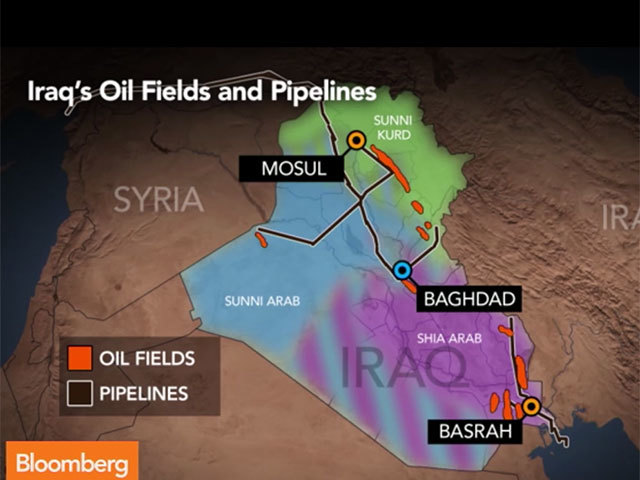
Chinese companies remain undeterred by recent violence and will keep investing in Iraq’s energy sector, China’s Middle East envoy said today.
Iraqi leaders told China they welcomed its investment and will step up security for Chinese companies, Ambassador Wu Sike said at a Beijing briefing that followed a visit to the country.
“From the long-term perspective China has confidence Iraq can realize domestic reconciliation and maintain stability,” said Wu, who studied in Iraq in the 1970s before taking up his first diplomatic post there.
Violence in Iraq threatens a key source of oil imports for China, which surpassed the US in September of last year to become the world’s largest net importer of crude and other liquid fuels. Wu visited Iraq, Turkey and Iran from July 7-14 before heading back to the region to visit Israel, the Palestinian territories, Qatar and Egypt.
Chinese companies have evacuated workers from Iraq in the weeks since an al-Qaeda offshoot seized northern cities in June with vows to kill anyone who tries to stop the expansion of their Islamic state.
“The Middle East has a special position, because of its rich energy resources the regional stability has direct impact on the global economy,” Wu said.
Wu said China’s energy sources are diversified and the country has “very good relations” with many oil exporters.
Military action isn’t a long-term solution for Iraq and the country needs political reconciliation, Wu said. The Iraq war is the source of recent turbulence because it opened a space for extremist groups to thrive, he said.
“China has a saying — as long as brothers work together, they can overcome any difficulty,” Wu said. “Only when you have this unity you can have efforts and energy to cope with the threats of terrorism.”
Asked whether China would seek to buy oil from Iraq’s semi- autonomous Kurdistan region, Wu said China’s cooperation depends on Iraq being a sovereign nation.
Kurdistan’s regional government is seeking to sell oil from its territory and claim revenues to help finance its effort for further independence from the national government. Officials in Baghdad have said the country’s oil revenues belong to the central government.
In June, Iraq had the highest estimated oil output of any member of the Organization of Petroleum Exporting Countries except Saudi Arabia. The Kurdistan regional government estimates the area holds 45 billion barrels of oil reserves.
